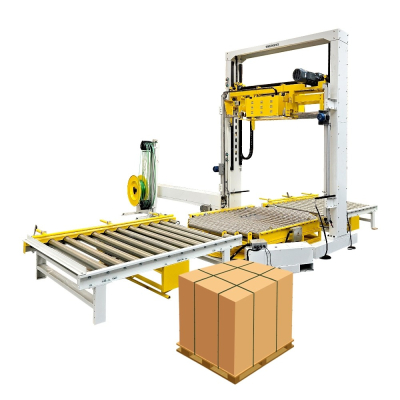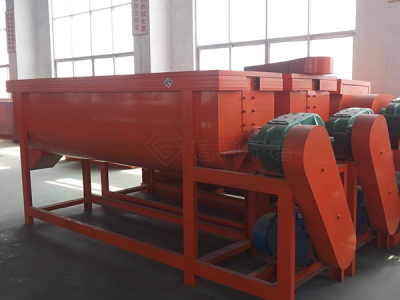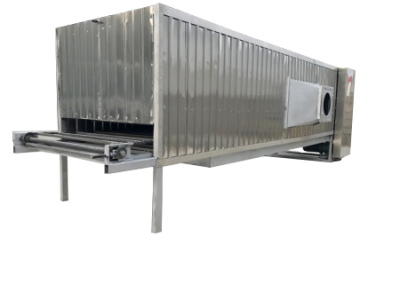Development status and prospect of bio-organic fertilizer
First, the importance of promoting bio-organic fertilizer
Fertilizer is the food of plants, and fertilization is an important means to ensure the high and stable yield of crops in agricultural production. China is the world's largest fertilizer production and consumption country, fertilizer use is large, although in a certain time and to a certain extent to improve the yield of crops, but the soil, water, agricultural products and the environment caused by increasing harm, such as: Soil acidification, compaction, nutrient imbalance, groundwater pollution, heavy metal and nitrate content of agricultural products exceed the standard, leading to a variety of ecological environment pollution and human diseases. The lack of soil organic matter and the decrease of soil fertility due to heavy and indiscriminate application of chemical fertilizer have become an important limiting factor affecting the sustainable development of agriculture and stable and high yield of crops in China. According to the survey statistics, about 80% of China's agricultural arable land is deficient in nitrogen, 50% in phosphorus, 30% in potassium, and some soil organic matter is less than 1%. And all kinds of organic fertilizers usually contain more than 60% organic matter, more than 2.5% nitrogen, more than 2% phosphorus, and also contain various trace elements, not only a good fertilizer source, but also an excellent soil amendment. Therefore, vigorously promoting bio-organic fertilizer is an inevitable way to achieve sustainable development of agriculture in the future.
Second, the advantages of biological organic fertilizer and its effects
1. Advantages of bio-organic fertilizer
Biological organic fertilizer refers to the use of livestock and poultry manure, straw, agricultural by-products and food processing waste, organic waste and urban sludge, etc., after microbial fermentation, decomposition and harmless treatment of fertilizer processing. Compared with ordinary organic fertilizer, bio-organic fertilizer has the following advantages: First, the organic matter content of bio-organic fertilizer is greater than 35%, the total nitrogen, phosphorus and potassium content is greater than 6%, which meets the quality standards of commercial organic fertilizer products. Second, bio-organic fertilizer contains a large number of beneficial microbial metabolites. Third, after the raw materials of bio-organic fertilizer are continuously fermented at high temperature for 10 to 15 days, pathogenic microorganisms, pests and their eggs, weeds and weed seeds in the raw materials are killed in large numbers, reducing the source of disease, insects and grass damage. Fourth, the bio-organic fertilizer made of microbial fermentation has no odor, low production cost, and is easy for farmers to accept and use.
2. Effect of bio-organic fertilizer
(1) Increase crop yield and improve crop quality. The nutrient release of bio-organic fertilizer is slow, and nitrogen is mostly supplied to plants in the form of ammonium ion or amino acid. After entering plant cells, it does not need to consume a lot of energy and directly participates in the synthesis of plant cell material. Therefore, after using bio-organic fertilizer, plants grow fast, accumulate more necessary components and dry matter, and produce good quality.
(2) Improve soil fertility, improve soil physical and chemical properties. The use of bio-organic fertilizer can not only supplement the consumed organic fertilizer, but also continuously increase the content of soil organic matter. After decomposition by microorganisms, organic matter can be condensed into new humus, which combines with other substances in the soil to form organic and inorganic complex, promoting the formation of micro-grained structure in the soil, thus coordinating the contradiction of water, fertilizer, gas and heat in the soil, improving the soil structure, making the soil loose and improving the cultivability.
(3) Regulate the microflora and improve the soil microecosystem. Mature organic fertilizer contains yeast, lactic acid bacteria, cellulose decomposing bacteria and other beneficial microorganisms, and bio-organic fertilizer with functional bacteria also contains nitrogen-fixing bacteria, silicate bacteria, phospholytic bacteria, photosynthetic bacteria and pseudomonas and other beneficial bacteria, these microorganisms in addition to the ability to produce a large number of active substances, but also has the ability to fix nitrogen, dissolve phosphorus, solve potassium. Some also have the ability to inhibit plant root pathogens, and some have the ability to improve soil microecological environment. In addition, the application of bio-organic fertilizer in soil can regulate the flora composition of microorganisms in soil and make beneficial changes in the structure of soil microecosystems.
(4) Activating insoluble compounds to improve soil supporting capacity. Bioorganic fertilizers contain nitrogen-fixing microorganisms, which can reduce nitrogen in the air to components that can be absorbed and utilized by crops through the action of nitrogenase, which is an important way for crops to provide nitrogen nutrition. In addition, a certain number of phosphorus-soluble microorganisms and silicate bacteria are added to the bio-organic fertilizer. After being applied to the soil, it can proliferate and cooperate with other soil microorganisms to decompose some primary and secondary minerals in the soil, and at the same time release the phosphorus, potassium and other nutrients fixed by these minerals, and convert the ineffective phosphorus and potassium into effective nutrients that can be absorbed and utilized by crops. It is directly absorbed and utilized by crops to improve the ability of soil to provide fertilizer.
(5) Improve soil ecology and reduce the occurrence of plant diseases and pests. In the biological organic fertilizer contains a variety of specific bacteria, in the growth and reproduction process of microorganisms, can secrete a variety of antibiotics and plant growth hormones, not only can inhibit the activity of plant pathogenic microorganisms, play a role in preventing and controlling plant diseases, but also can stimulate the growth of crops, make its roots developed, promote the synthesis of chlorophyll, protein and nucleic acid, improve the resistance of crops.
3. Bio-organic fertilizer production process and technology
The technical content of bio-organic fertilizer production is relatively high, in addition to adding biological bacteria to promote the maturation and decomposition of organic materials during the maturation process to achieve directional maturation, deodorization and other purposes, it is also necessary to add microorganisms with specific functions in the product to enhance the effect of the product. At present, China from the management of biological organic fertilizer into the category of microbial fertilizer, the implementation of more stringent management measures than organic fertilizer, in order to promote the healthy development of organic fertilizer.
1. Production process
Bio-organic fertilizer production enterprises registered in the Ministry of Agriculture, basically engaged in microbial fertilizer production, in the fermentation production process, the use of tank pile fermentation method, there are other fermentation methods, such as: flat pile fermentation method, fermentation tank fermentation method, sealed bin fermentation method, etc., has also been applied in the production. In the process of fermentation and maturation, the adjustment of water, carbon and nitrogen ratio, temperature and the use of maturation agent are the keys of the production process, especially the application of bactericides directly affects the fermentation cycle and maturation degree of materials. The decomposed material basically realizes the harmfulness of the product, which is also conducive to the survival of the functional bacteria added in the post-treatment process.
2. Production technology
In the post-treatment of fermentation materials, most enterprises add functional bacteria for compounding and shaping, and the product dosage form is mainly dust, but there are also roller granulation or extrusion granulation. Granule products overcome the shortcomings of powder products with poor appearance and low level, improve the marketability of products, but also improve the production cost of enterprises, and have a certain impact on the survival of effective bacteria.
3. Species and use of bacteria
Microbial strains are the core of bio-organic fertilizer products, in the production process, there are generally two links involved in the use of microorganisms: first, in the process of decomposition to promote the decomposition of materials, decomposition of both deodorizing function of the maturing bacteria, which are composed of composite bacteria, common strains are photosynthetic bacteria, lactic acid bacteria, yeast, actinomyces, penicillium, trichoderma and so on; The second is the functional bacteria added after the material is decomposed, which are generally homo-nitrogen bacteria, phospholytic bacteria, silicate bacteria, lactic acid bacteria, pseudomonas, actinomyces, etc., which play a specific fertilizer effect in the product. Therefore, for the production of bio-organic fertilizer, the screening and use of microbial strains is a core technology, and only by mastering this key technology can we speed up the decomposition and decomposition of materials, and ensure the application effect of products.
4. Sales and application
Because the production cost of bio-organic fertilizer is higher than that of ordinary organic fertilizer, it is mainly applied to high value-added cash crops such as vegetables, fruits and Chinese herbs, and has achieved good results. Bio-organic fertilizer plays an irreplaceable role in improving the quality of agricultural products, but there are still some difficulties in production and sales, which is because high-quality agricultural products are not fully achieved in high quality and high price, which affects the enthusiasm of farmers to a certain extent, making the promotion of bio-organic fertilizer meet greater difficulties. In recent years, bio-organic fertilizer has been widely used in some ecological demonstration areas, green and organic agricultural products bases, which is the main direction of the future development of bio-organic fertilizer. With the expansion of the production scale of green organic agricultural products and the improvement of people's consumption level, the production and application of bio-organic fertilizer must be the mainstream.





